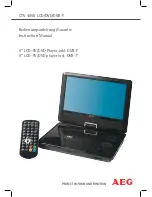
Fuel Conversion/Gas Connections
20
Installation Guidelines for 60 Hz EcoGen™ Generator
Flexible Fuel Line
See
B
Figure 5-3 and
. When connecting
the gas line to the generator, use a hose assembly that
meets the requirements of ANSI Z21.75/ CSA 6.27 –
Connectors for outdoor Gas Appliances and
Manufactured Homes or AGA–approved flexible fuel line
in accordance with local regulations.
The purpose of flexible fuel line is to isolate vibration from
the generator to reduce possibility of a gas leak at one of
the connection points. It is important the line be installed
with as few bends as possible. The flex fuel line should
be horizontal and plumbed parallel to the back of the
generator.
Figure 5-3. Do Not Bend Flexible Fuel Line
Sediment Trap
See
C
in
. Some local codes require a
sediment trap. Install the recommended sediment trap as
illustrated.
Figure 5-4. Sediment Trap
Checking Gas Line Connections
1.
Check for leaks by spraying all connection points
with a non–corrosive gas leak detection fluid. You
should not see the solution be blown away or form
bubbles.
2.
Check gas pressure at the regulator in the
generator by following these steps.
•
Close gas supply valve.
•
See
Remove the top gas pressure
test port from the regulator and install the gas
pressure tester (manometer).
•
Open the gas supply valve and verify the
pressure is within the specified values.
NOTE:
Gas pressure can also be tested at the
manometer port on the fuel shut–off valve shown in
NOTE:
See Owner’s Manual or spec sheet for proper
fuel pressure specifications. If the gas pressure is not
within specifications, contact the local gas supplier.
3.
Close gas valve when completed.
Figure 5-5. Checking Pressure with Manometer
001462
B
(000205)
CAUTION
Equipment damage. Do not bend flexible fuel line.
Bends in fuel line restrict fuel flow and reduce
ability to absorb vibration.
000617
B
C
A
000848
Summary of Contents for ecoGen G0061030
Page 55: ......
















































